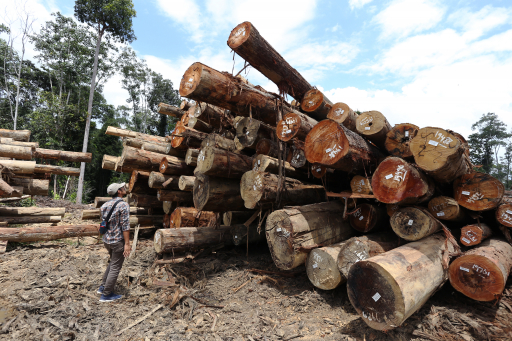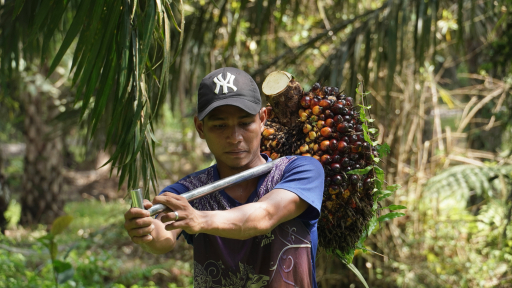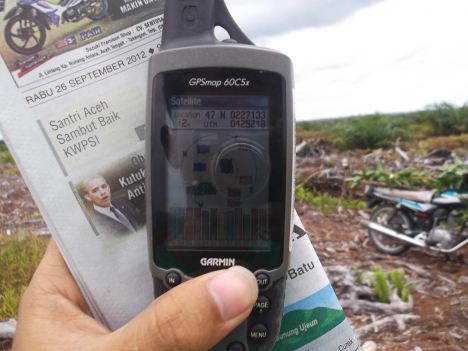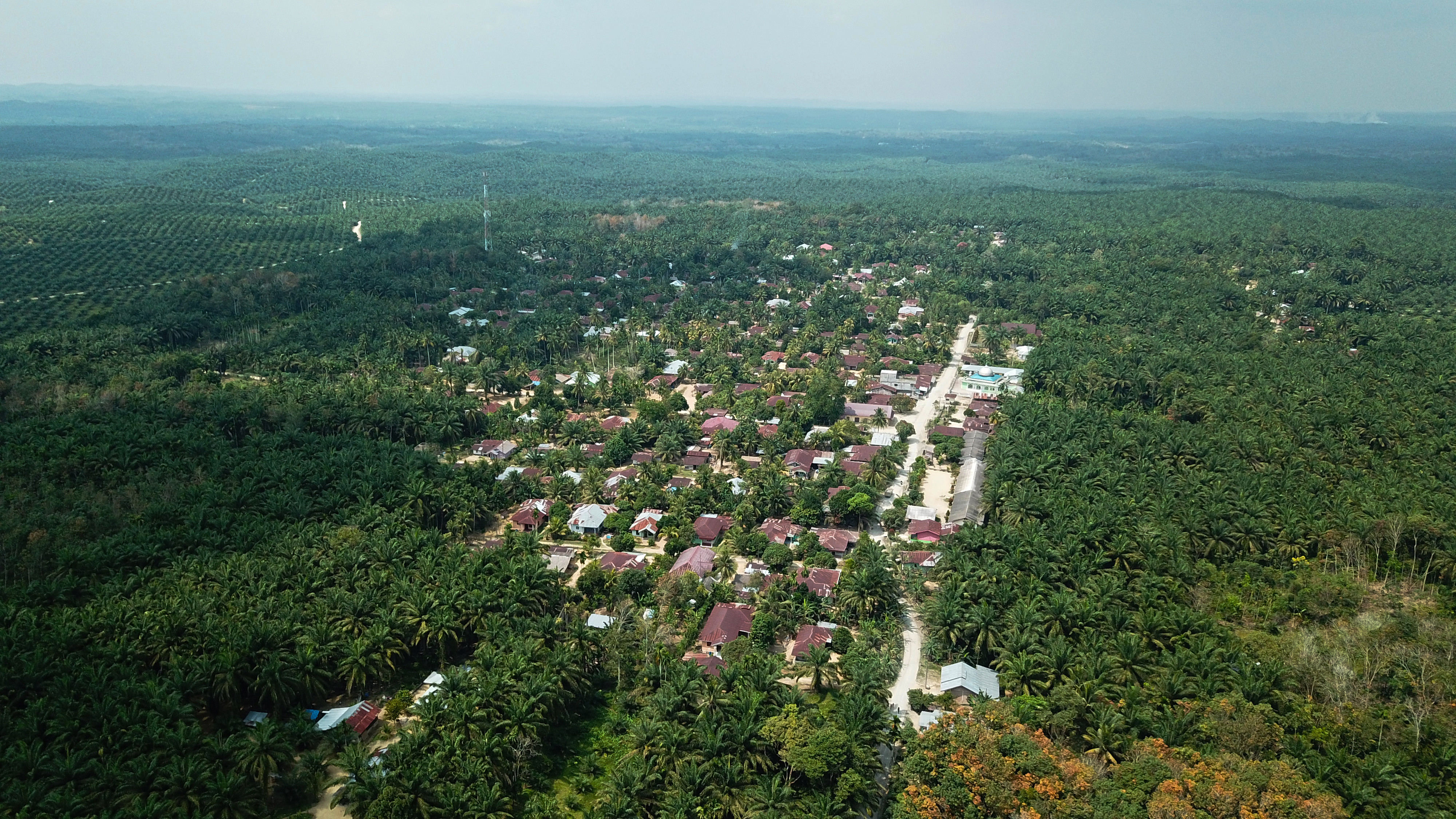Indonesian CSOs Joint Statement on EU Due Diligence Regulation
While recognizing this regulation is an entry point to halt deforestation, Indonesian CSOs put forward a number of notes to improve the draft.
Jakarta, 22 April 2022 - We, the undersigned Indonesian civil society groups, welcome the proposal of the European Union Due Diligence Regulation (EUDDR) which will regulate deforestation-free and forest degradation-free commodities and products. This marks a serious step-change in the response of consumer countries in Europe to the pressing challenges of the climate crisis, including the realization thatthe European Union’s consumption of various commodities and their derivatives is one of the causes of increasing biodiversity loss and an active contribution to greenhouse gas emissions.
The initial action to ensure that the six main commodities that are widely consumed in EU member states--palm oil, timber, coffee, cocoa, soybeans and beef--are free from deforestation and forest degradation, reflects the EU’s responsibility as a consumer.
However, as part of the civil society in the producing countries that will be indirectly affected by this regulation, we consider that cleaning the supply chain of commodities and products entering the EU market is not enough. This EU regulatory initiative fails to include the provision of incentives and support towards the efforts to reduce and prevent deforestation, as well as reforming the commodity production patterns by producing countries currently undertaking an endeavour to address the causes of deforestation and not yet reach the deforestation-free stage.
This one-sided approach, instead of strengthening investment in forest protection and halting deforestation, can potentially undermine the ongoing initiatives by producing countries to improve forest and land governance in their respective countries through policy reforms and mandatory commitments set upon the private sector producing forest-risk commodities.
The proposed regulation also disregards the potential direct consequences it has on independent smallholders in the form of their exclusion from the supply chain which will have a detrimental impact on their livelihoods.

Bornean ironwood logs in a logging concession in East Kalimantan Province. The species are protected, but rampantly cut including for export. (Photo: Auriga Nusantara)
However, we recognize that this regulation is an entry point that can be used to continue to encourage positive changes in producing countries to halt deforestation and produce legal and sustainable commodities. We put forward a number of notes that we feel are important to improve the quality of the proposed regulation so that it can ultimately achieve the main goal of tackling global deforestation, as follows:
1. Deforestation, apart from being defined as the conversion of area functions, must also be defined as “the loss of forest cover – including savanna, steppe and peatland ecosystems – and their ecological functions, whether caused by humans or otherwise.” In addition, a forest must also be interpreted as an ecosystem unit in the form of a stretch of natural land for at least five years with an area of at least 0.5 hectares which is dominated by trees in their natural environment, which cannot be separated from one another.
2. Forest degradation, if it is to be included in this regulation, must be further elaborated with clear criteria, indicators and measurement methods so as not to marginalize independent smallholders and Indigenous Peoples and Local Communities (IPLCs).
3. We also regret that the proposed cut-off date is 31 December 2020. While we could understand the intended timing so as not to disrupt business activities, this also means that massive forest destruction in the period before the cut-off date will be whitewashed. We propose that the cut-off date be pushed back to December 31, 2000, considering the occurrence of large-scale forest loss and the availability of monitoring technology that allows widespread public participation since then.

Harvesting palm oil in area that was forest cover in 2000 in Riau Province. (Photo: Auriga Nusantara)
4. We propose that the benchmarking is carried out by involving the countries to be assessed, particularly in the formulation of criteria and indicators as well as the implementation of risk assessments, which need to include independent competent third parties. In addition, the implementation of the benchmarking must be carried out in a transparent manner and allow all information related to the process and results of the benchmarking to be widely accessible to the public.
5. We view that compliance with legality, which refers to the laws and regulations of producing countries, can result in gaps in terms of compliance levels and standards, given the differences in legal systems and compliance standards in each country. It is necessary to apply criteria and fulfil indicators related to legality, especially to ensure respect for human rights, which must refer to applicable international instruments, which include:
- Covenant on Economics, Social and
- Political Rights,
- Conventions relating to women’s rights and children’s rights,
- Convention on Anti-Corruption,
- UN Declaration on Indigenous Peoples Rights
- ILO Conventions 111 and 169,
- UN guidelines on business and human rights, and
- FPIC Principle
6. We suggest that the results of the benchmarking should not be an excuse to simplify the due diligence for commodities placed on the EU market. Because the low-risk status for a country does not necessarily apply to all commodities nor guarantee full legal compliance and free from deforestation and forest degradation.
7. For independent smallholders in producing countries, there should be a set of safeguards and direct market incentives in form of financial support, market access, prices and transfer of technology to help them in meeting the due diligence requirements. In addition, there is a need to clarify the definition of independent smallholders, as well as technical guidance on providing the information required for due diligence. Sufficient time is needed to ensure the readiness and capacity of independent smallholders to fulfil the due diligence requirements before the regulation comes into effect.

A corporation's palm oil converting orangutan habitat in peatland ecosystem in Aceh Province. (Photo: Auriga Nusantara)
8. Given the role of financial institutions in financing this deforestation risk commodity business, the Due Diligence regulations must also be applied to financial institutions in the European Union that finance companies producing commodities placed on the European Union market.
9. Small and Medium Enterprises (SMEs) located in the European Union are required to apply Due Diligence so that they do not become the loopholes that can be exploited by risky commodity producers.
10. To support the integrity of the implementation of this Due Diligence rule, it is necessary to have transparency on information and a complaint mechanism that provides space for participation and is easily accessible to the public.
11. In the timber sector, Indonesia is a FLEGT (Forest Law Enforcement Governance and Trade) license holder and has an active FLEGT-VPA (Voluntary Partnership Agreement) with the European Union. For this reason, there must be a join roadmap to ensure the future of the FLEGT-VPA so that the positive impacts of governance reform can be maintained and strengthened to achieve timber and wood products that are not only legal but also sustainable across the supply chain. The European Union and Indonesia should jointly explore the clauses related to the Forest Partnership in this proposed regulation in the context of a FLEGT-VPA.
12. For palm oil commodity and products:
- It is necessary to have affirmative actions towards the independent smallholders in the form of direct supply chain which guarantees at least 30% of the purchased quota by companies from the European Union through a fair and just partnership scheme.
- The Indonesian independent smallholders are committed to providing data independently to meet the traceability requirements.
- The Indonesian independent smallholders have so far carried out various efforts to reduce the deforestation rate through active involvement within HCSA membership and participating in various sustainable palm oil certification schemes (RSPO, ISPO and ISCC).
- We propose the definition of independent smallholders is limited to those with a maximum of 10 hectares of farming area, which they manage on their own, and live in the vicinity of their plantations.
---
Contacts:
- Andre Barahamain (Kaoem Telapak): +62 822.6130.1497 barahamin@kaoemtelapak.org
- Hilman Afif (Auriga Nusantara): hilman@auriga.or.id
Signatories
- Aliansi Masyarakat Adat Nusantara (AMAN)
- Coaction Indonesia (Koaksi Indonesia)
- Deling Kuning
- Forest Watch Indonesia (FWI)
- Global Geografi Indonesia (GRID)
- Green of Borneo
- Jaringan Pemantau Independen Kehutanan (JPIK)
- Jurnal Celebes
- Komunitas Masyarakat Desa - Sultra (KOMNASDESA - SULTRA)
- Komunitas Teras
- Lembaga Papuana Konservasi – Manokwari, Papua Barat
- Lembaga Studi & Advokasi Masyarakat (ELSAM)
- Link-AR Borneo
- PADI Indonesia
- Pengurus Daerah (PD) AMAN Sorong Raya
- Perhimpunan Bantuan Hukum Keadilan dan Perdamaian (PBHKP) Sorong, Papua Barat
- Perkumpulan Alam Hijau (A-HI)
- Perkumpulan Belantara
- Perkumpulan Kaoem Telapak
- POKJA Pesisir
- Pusat Pendidikan Lingkungan Hidup (PPLH) Mangkubumi
- Relawan Untuk Orang & Alam (ROA)
- Sawit Watch
- Serikat Petani Kelapa Sawit (SPKS)
- The Institute for Ecosoc Rights
- Uno Itam
- Wahana Lingkungan Hidup Indonesia (WALHI)
- Walhi Papua
- Yayasan Auriga Nusantara
- Yayasan Etnika Kosmologi Katulistiwa
- Yayasan FORTASBI (Forum Petani Sawit Berkelanjutan Indonesia)
- Yayasan Kaharingan Institute
- Yayasan Peduli Nanggroe Atjeh (PeNA)
- Yayasan Pusaka Bentala Rakyat
- Yayasan Sangga Bumi Lestari (Aidenvironment Asia)


